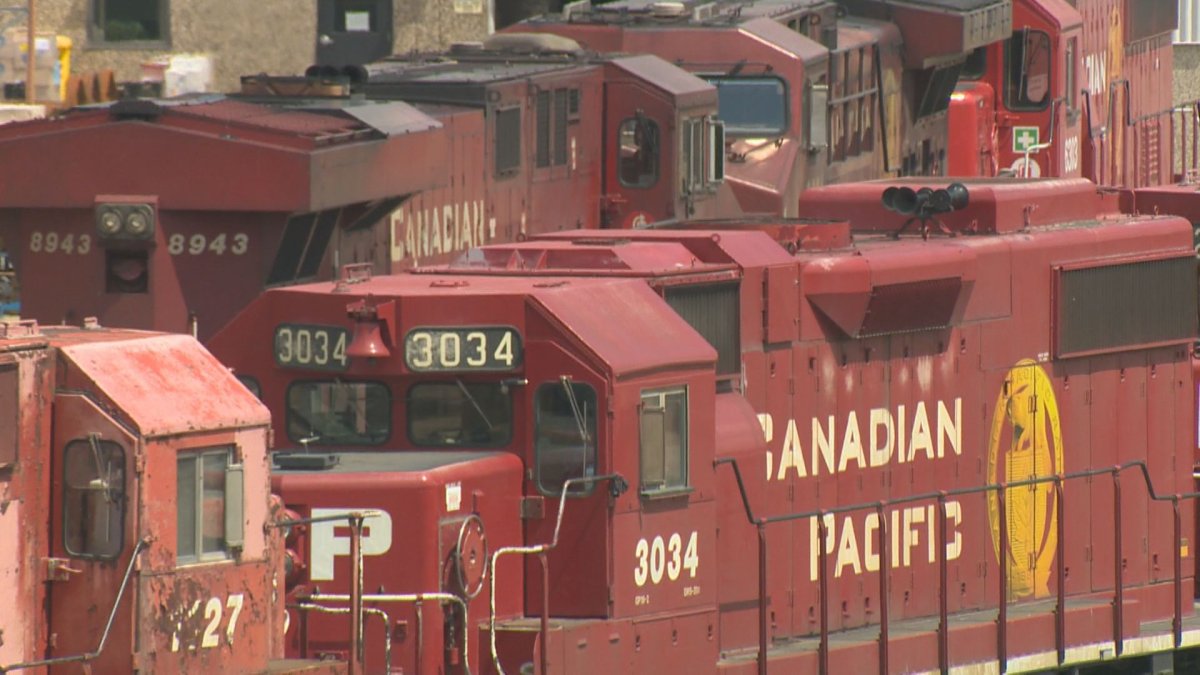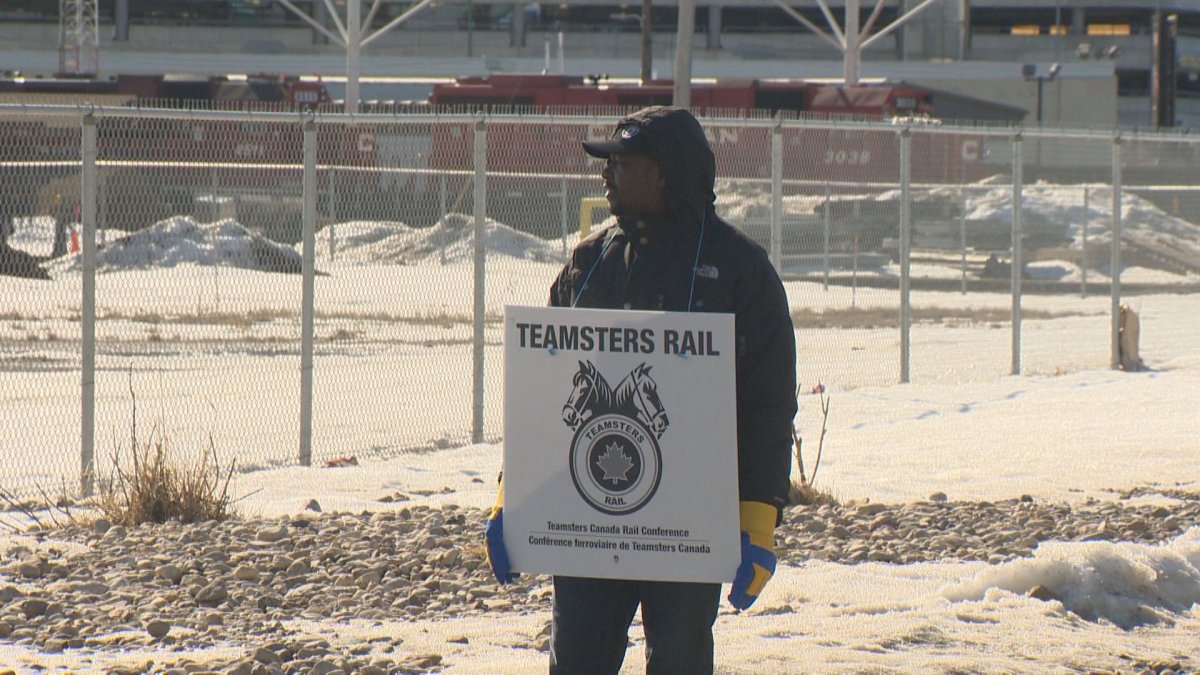It has been over a day and a half since the labour dispute began between Canadian Pacific Railway and the Teamsters Canada Rail Conference — the union representing the company’s employees.

Concerns continue to grow from coast to coast as there seems to be no conclusion to the matter in sight, especially in Saskatchewan.
This comes after the province faced its worst drought in over 30 years in 2021.
One organization who has voiced their worries over the work stoppage and its implications on the provincial economy is the Saskatchewan Association of Rural Municipalities (SARM).
SARM president Ray Orb, who shared his thoughts on the situation on Monday with Global News Morning, said this is a very serious situation, especially for livestock producers in the province.
“I don’t think we have seen this in the past. The severity of this cannot be explained,” suggested Orb. “It’s important that the livestock producers feed their cattle every day and this is ongoing.”
Orb mentioned how SARM has been monitoring discussions between the groups, but since nothing has come out of negotiations so far, he feels the best move now is for the federal government to legislate the employees back to work.
“Passing this legislation would be really important to all of our members because it takes a lot of our products off the roads, our grid roads in particular, and puts them on the rail, which is what we should be doing in this province.”
Orb added that livestock producers are looking to bring in grain, particularly corn, from the United States. With trains at a halt, he said it puts their livestock at risk.
Another group worried about the effects of the labour stoppage is the Saskatchewan Cattlemen’s Association.
Arnold Balicki, chair of the association, said there are no words to reflect the degree of concern they have.
Last Thursday, the organization had representatives from the National Cattle Feeders Association join their monthly call.
He said they did a polling of their feedlot operators and found they only have enough corn in inventory anywhere from five to 14 days.
“If we run out of corn for these animals, there is going to be a tremendous animal welfare issue. What are these cattle going to eat,” Balicki discussed. “This cannot go on.”
Balicki is concerned negotiations will not lead to an agreement soon. He said there is no backup feed with their only source being corn from south of the border.
“We need 10 to 12 train loads of corn every day to feed the 1.1 million cattle that are in the feedlot system right now,” added Balicki. “And to offset the train strike, we would need to employ 1,000 semis a day to haul in corn for these cattle.”
Heading into the busiest season for farmers, the Agricultural Producers Association (APAS) of Saskatchewan said the CP conflict needs to be resolved as soon as possible.
After a low income year for the agriculture sector, prices jumped across the board.
Now, as farmers look to plant their crops in the spring, seed prices could skyrocket once again — leaving farmers in a tight position.
“As we go into the busiest season where we spend all our money to put the crop in the ground, farmers sold or pre-sold that grain with intent of cash so at this time of year if we can’t deliver it then we don’t get paid for it,” told APAS president Ian Boxall to Global News.
However, Boxall said farmers would not be in this industry if they were not able to endure the ups and downs.
He added they will stay resilient through this situation.
“The union and (CP) need to get back to the table and find a resolution to this for all Canadians.”
Saskatchewan reached a record year for agricultural exports at nearly $17 million in 2020. It made up for 55 per cent of total exports that year.
CP Rail also moves 75 per cent of fertilizer in Canada, meaning if Saskatchewan is not being provided that fertilizer, it could cause a large financial and economic impact on the province.






Comments